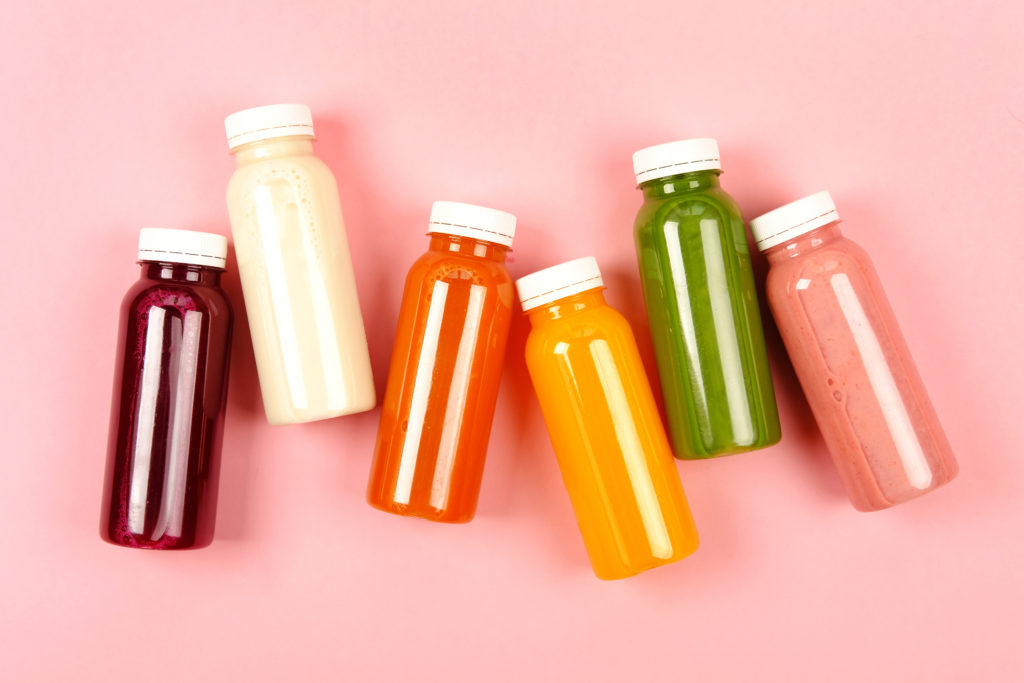
The trend towards food and beverage items boasting health benefits is not new. In fact, so-called functional foods have been sold in grocery stores for years. Tropicana, for example, first released its line of fortified juices back in 2004 under the Pure Premium line, which included orange juices with added vitamins and less sugar. But a growing push by consumers to eat healthier, more nutritious food has increased the demand for items that provide added benefits.
The ongoing COVID-19 pandemic boosted interest in functional foods that delivered health benefits like stress management, immune support and added nutrition. According to an innovation report published by IRI, products boasting an immunity or antioxidant claim rose 12% in 2020, while those carrying an added nutrient claim increased by 10%.
While the ongoing pandemic accelerated this trend towards functional foods, it’s clear that the fad is here to stay. Let’s take a closer look into this growing trend.
What are Functional Foods?
In the US, functional foods and label claims that appear on food and beverage products are regulated by the Food and Drug Administration (FDA). But while the FDA oversees terms such as “reduced sodium,” “lite” or “low-fat,” there is currently no legal definition for functional foods. This leaves American consumers on their own to decipher whether a product is, in fact, functional or not.
According to the Academy of Nutrition and Dietetics, the world’s largest organization of food and nutrition professionals, “functional foods” cover a variety of products. These often include minimally processed, whole foods as well as fortified, enriched or enhanced items. These products generally have a beneficial impact on health when consumed on a regular basis.
A Long-Term Shift Towards Health
But where does demand for functional foods come from? Even before the COVID-19 pandemic hit, the food and beverage industry was experiencing a shift in attitude towards health. An aging society, diets high in processed foods and sugar, less time to focus on healthy eating and high stress levels among consumers are all factors contributing to this shift.
After more than year of staying home due to the pandemic, many consumers have had time to cook more and reevaluate their food choices. This behavior isn’t likely to change when life begins to look more like it did pre-pandemic. In 2020, the demand for anti-inflammatory beverages like green tea and gut-wise fermented foods like yogurt and tempeh soared. And there’s no sign of demand for functional foods slowing down in 2021 and beyond.
Capitalizing on the Functional Food Trend
Some of the world’s biggest organizations – including Nestle and Danone – have already broken into the functional foods industry, and for good reason. According to a March 2019 study by Kerry, 65% of consumers are looking for functional benefits from their food and drinks. Major players in the food and CPG industry are working to capitalize on demand in the functional ingredients market, which is expected to reach $100 million by 2025.
Also notable to mention is that functional foods with nutrients like fiber, probiotics or immune support have grown in popularity because the technology has been developed to make products taste better and have better mouth feel. Advancements of this sort will only continue to drive demand and continue to make functional foods more accessible.
Where ERP Software Fits In
In the functional food and beverage industry, quality control, lot tracking and labelling is critical. With Enterprise Resource Planning (ERP) software purpose-built for food and beverage manufacturers, users can track lot attributes and integrate quality control for inspections to assure conformance to specifications. End-to-end visibility into every step of the production process using ERP software helps functional food manufacturers ensure that labelling is accurate and that all products comply to global safety standards.
ERP software works as a single system to manage your entire food and beverage business, including production and operations, finance, food safety, compliance, quality, traceability and more. With full control over your business, you can improve inventory management, track products by lot and serial number and be fully recall ready.
To learn how FoodBusiness ERP can work for your functional food business, reach out to us. We’d love to chat.

